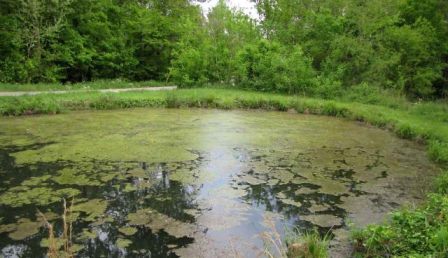Aquatic Weed Identification and Management
go.ncsu.edu/readext?936991
en Español / em Português
El inglés es el idioma de control de esta página. En la medida en que haya algún conflicto entre la traducción al inglés y la traducción, el inglés prevalece.
Al hacer clic en el enlace de traducción se activa un servicio de traducción gratuito para convertir la página al español. Al igual que con cualquier traducción por Internet, la conversión no es sensible al contexto y puede que no traduzca el texto en su significado original. NC State Extension no garantiza la exactitud del texto traducido. Por favor, tenga en cuenta que algunas aplicaciones y/o servicios pueden no funcionar como se espera cuando se traducen.
Português
Inglês é o idioma de controle desta página. Na medida que haja algum conflito entre o texto original em Inglês e a tradução, o Inglês prevalece.
Ao clicar no link de tradução, um serviço gratuito de tradução será ativado para converter a página para o Português. Como em qualquer tradução pela internet, a conversão não é sensivel ao contexto e pode não ocorrer a tradução para o significado orginal. O serviço de Extensão da Carolina do Norte (NC State Extension) não garante a exatidão do texto traduzido. Por favor, observe que algumas funções ou serviços podem não funcionar como esperado após a tradução.
English
English is the controlling language of this page. To the extent there is any conflict between the English text and the translation, English controls.
Clicking on the translation link activates a free translation service to convert the page to Spanish. As with any Internet translation, the conversion is not context-sensitive and may not translate the text to its original meaning. NC State Extension does not guarantee the accuracy of the translated text. Please note that some applications and/or services may not function as expected when translated.
Collapse ▲How to identify and manage pond weeds

Pond weeds in high densities, both native and invasive, can interfere with recreational fishing and swimming, crop irrigation, and livestock management. Join Horticulture Agents Matt Jones (Chatham County Center) and Cody Craddock (Randolph County Center) for a workshop on strategies to manage aquatic weeds in farm ponds. We will discuss how to identify different groups of aquatic plants and their control using both biological and herbicidal methods. Participants can receive two hours of NCDA&CS pesticide continuing education credits (A, D, N, X). Two versions of the in-person workshops will be offered in Chatham County (Pittsboro) and Randolph County (Asheboro).
Chatham County Center Tuesday, June 13, 2023, 6:00-8:00 p.m. REGISTER
Randolph County Center Wednesday, June 14, 2023 , 6:00-8:00 p.m. REGISTER
Questions?
Email matt_jones@ncsu.edu or call 919-542-8243
NC State University and N.C. A&T State University commit themselves to positive action to secure equal opportunity and prohibit discrimination and harassment regardless of age, color, disability, family and marital status, genetic information, national origin, political beliefs, race, religion, sexual identity (including pregnancy), and veteran status. NC State, N.C. A&T, U.S. Department of Agriculture, and local governments cooperating. Persons with disabilities and persons with limited English proficiency may request accommodations to participate by contacting Ginger Cunningham, County Extension Director, at 919.542.8202, ginger_cunningham@ncsu.edu, or in person at the County Extension Office at least 30 days prior to the event.




